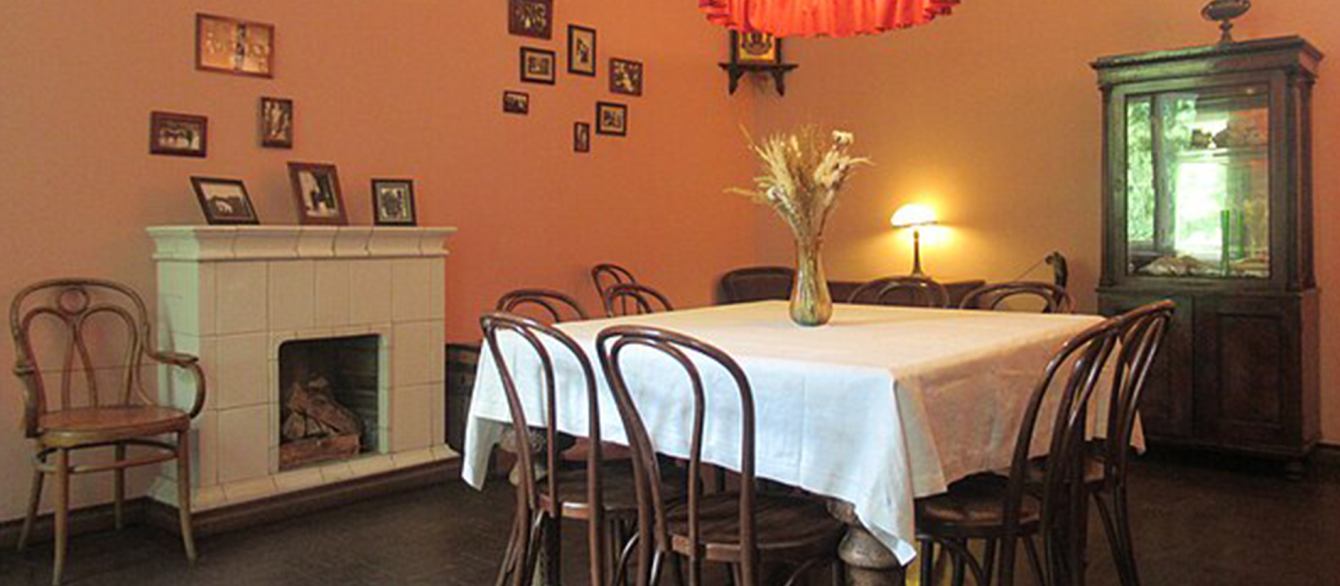Literary museums exist in a time of their own devising. Bound to the chronology of a writer’s life, they commemorate not only their subjects’ contributions to the literary canon but also the moment of the authors’ deaths. At that moment, books, manuscripts, and material objects belonging to Schiller, Pushkin, Shakespeare, or Tsvetaeva suddenly become “memorabilia” or even “relics,” metonymically representing the deceased creators.
In Soviet literary museum culture, the emphasis on death was reinforced by the tradition of venerating writers’ homes as sacred spaces of memory, which offered audiences an opportunity for solitary worship and spiritual self-reflection during an era of aggressive atheism accompanied by the demolition of churches and the near-obliteration of “bourgeois” material culture. This model still dominates the contemporary Russian museum scene. However, predictably, in times of war, it has undergone an ideological conversion centered on patriotic, nationalist, and anti-Western sentiment. Some Russian literary museums strive to align their interpretations of writers’ legacies with contemporary, state-sponsored media discourse.
This talk focuses on four contemporary literary projects from St. Petersburg that transcend the conformist or propagandistic paradigms. The Akhmatova and Brodsky museums are featured as sites that reject the traditional, altar-like model of a literary memorial. Instead, they draw their audiences toward a polyphonic forum — a space for expressing ideas and sharing urges of public disobedience. The Kharms Museum, organized by a group of like-minded individuals brought together through several Kharms Fest iterations, and the “Day Do” city festival dedicated to Dostoevsky challenge museum-goers’ expectations by commemorating the subversive, politically and morally controversial aspects of their authors’ biographies and key texts.
We will explore how these institutions contribute to anti-war resistance by contrasting archaic museum methods of narrating writers’ lives through “still life” exhibits with innovative approaches based on dialogue and critical thinking. The latter include palimpsestic public writing on the walls of Akhmatova’s Fountain House garden and sharing museum space between visitors and curators in Brodsky’s "A Room and a Half."
Sponsorship
This event is co-sponsored by the Department of Slavic Languages and Literatures at Harvard University.
Accessibility
The Davis Center for Russian and Eurasian Studies at Harvard University encourages persons with disabilities to participate in its programs and activities. If you anticipate needing any type of accommodation or have questions about the physical access provided, please contact us at 617-495-4037 or daviscenter@fas.harvard.edu in advance of your participation or visit. Requests for Sign Language interpreters and/or CART providers should be made at least two weeks in advance if possible. Please note that the Davis Center will make every effort to secure services but that services are subject to availability.




